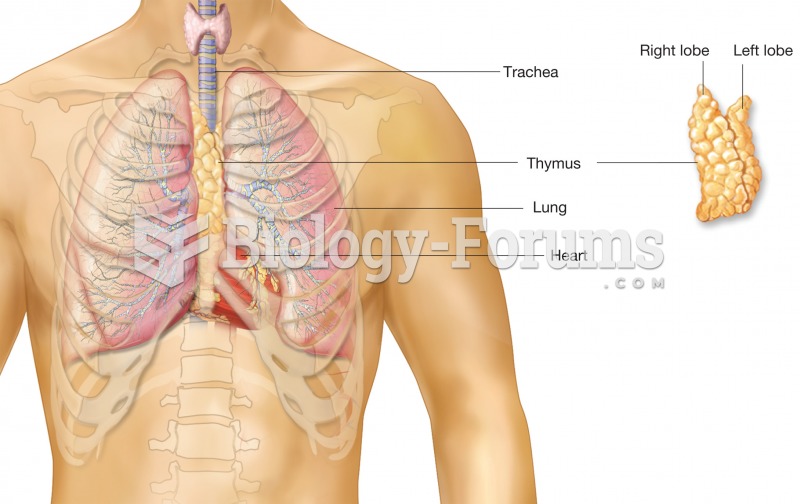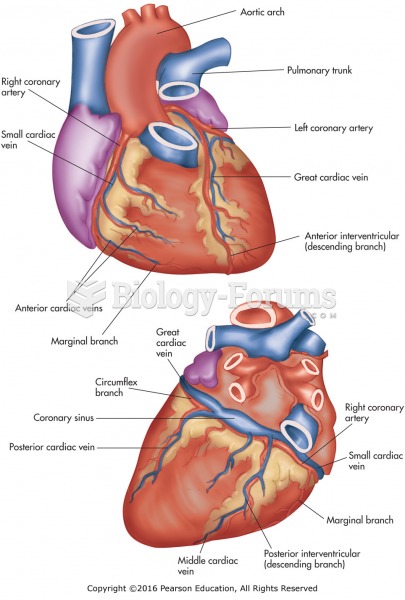|
|
|
Children of people with alcoholism are more inclined to drink alcohol or use hard drugs. In fact, they are 400 times more likely to use hard drugs than those who do not have a family history of alcohol addiction.
Adult head lice are gray, about ? inch long, and often have a tiny dot on their backs. A female can lay between 50 and 150 eggs within the several weeks that she is alive. They feed on human blood.
Limit intake of red meat and dairy products made with whole milk. Choose skim milk, low-fat or fat-free dairy products. Limit fried food. Use healthy oils when cooking.
Since 1988, the CDC has reported a 99% reduction in bacterial meningitis caused by Haemophilus influenzae, due to the introduction of the vaccine against it.
Your chance of developing a kidney stone is 1 in 10. In recent years, approximately 3.7 million people in the United States were diagnosed with a kidney disease.
 The vegetation history of landscapes can be reconstructed using the pollen contained within the sedi
The vegetation history of landscapes can be reconstructed using the pollen contained within the sedi
 European Rabbit in Shropshire, England, infected with myxomatosis, a disease caused by the Myxoma vi
European Rabbit in Shropshire, England, infected with myxomatosis, a disease caused by the Myxoma vi





